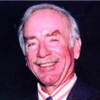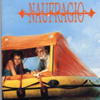OVERWHELMED BY A TSUNAMI
Antofogasta, Chile, welcomed us like long lost brothers. As a matter of fact they knew we were coming as I had emailed the National Captain of the Brotherhood of the Coast to tell him we had left San Juan, Puerto Rico and were on our way to the Brotherhood’s quadrennial meeting to be held during late October, 1994, in Viñas del Mar. He in turn spread the word to all local chapters to watch out for the sailing vessel New Chance, a North American 40.
Antofogasta is the greatest of cities! The town plaza kept plum full of the friendliest of people, young and old, way past midnight. Children played freely while their elders caught up with the latest. And the food was truly out of this world. One of our brothers introduced us to ‘erizo’, sea urchin, A certain variety of sea urchin found off southern Chile, black with short spines, is the best. Their egg sacks, and each animal has 7, are removed, washed and mixed into a bed of finely chopped onions, a bit of limejuice and other condiments, and suddenly I faced a plate that quickly conquered my natural reluctance and left me hungering for more.
Then came the main course, ‘congrio’, a fish-like conger that lives in extremely deep water.The fish is about 5 inches in diameter with a ¾ inch clean bone that runs down the center of the 4 inch thick slice. Well seasoned it is charcoal broiled and served amidst a bed of linguini. It’s about as close to heaven as I’ll ever get. A couple of days later the Brotherhood celebrated our stopover with a Zafarrancho, get-together, at their ‘guarida’, their meeting hall dug out of a cave just feet off a rocky coast, where we were overwhelmed with barbequed alpaca. Overall, Antofogasta still remains as one of our top stops worldwide.
My crew flew home and on October 4, 1994, I bid farewell to a host of great friends and sailed away solo. Winds all along the coast of Chile run generally north as does the current, yet both tend to follow the winding coast line. In other words, we had the wind and current on the nose most of the time. All the way from Panama we had chosen to tack into shore during the day to sightsee and headed out once it got dark. With my no-fail Billy Butler night warning light, a marinized orange utility-truck rotating light fastened to a slab of wood for easy mounting, I had no problem sailing solo at night. Ships would see the bright flashing orange light, call over the VHF, which I had left on at full audio, and wake me up. It had not failed me yet. But, as I had promised my wife, Lirio, that I would anchor every night when alone, and being a man of my word, I starting hunting for a decent place to drop the hook about 2 hours before dark.
I selected a small ‘caleta’, cove, from the chart and headed in. Just outside I furled the sails and slowly motored in, taking in the geography while keeping a sharp eye on the depth indicator. I found the twenty feet of water I preferred alee of a small peninsula. The land wrapped around to a rocky beach with a small hut then branched out towards the north. With about 300 feet of water to the beach, I felt comfortable. Old faithful, my 40-pound Danforth, went over the side with 50 feet of 3/8” chain and another fifty feet of one inch line and made fast. Once taught, I put the boat into reverse and damn if the anchor failed to hold. I worked my way back up the anchor line, heaved it aboard and dropped it again. It didn’t hold any better on the second try. Nor did it on the third. Out came the 35-pound CQR, more chain and line, and after powering over to the original bottom, I dumped it over the side. The darned thing held, thank the Lord. I motored way over to port and dumped the Danforth back in for whatever good in might do, but at least I got the mess off the deck, tightened it up, tidied the bow and headed back for well-needed R&R as the entire process had taken more than an hour.
We’d switched from rum and cokes, our Puerto Rican staple, in El Callao, Peru, when we found they wanted $28 for a bottle of rum. When we found the natives drank pisco, we loaded up. It didn’t take long for the skipper to come up with a mixture of limejuice, seven up plus pisco that drove the crew wild. Soon thereafter the concoction was baptized ‘Pisco New Chance’.
I’d taken no more than two sips when two men I had seen on shore near the hut began to fire a rifle. A peek through the binoculars proved they were hunting some sort of little animal. I was really not concerned as I had found that the Chilean Navy and Coast Guard keep their waters quite tidy. I sat back, kept an eye on the guys on the beach, and continued to pour down my never-fail relaxant.
I was on my second Pisco when I remembered that I had a radio date at 6 p.m. with the friends I had left behind in Antofogasta. It was now almost 6:30. I tuned the single side band to 8104 and called. The response was immediate. And frantic. “New Chance, Where are you?” was repeated a half dozen times. I reported where I was anchored. They came back, even more frantic than before with, “New Chance, this is an emergency. You cannot stay there. Head for Sea. A tsunami is going to hit the shore this evening. You have but an hour. Lift anchor. Get out to sea. Now!”
With a mixed feeling ‘gracias’, I left the rig on standby and went back on deck to finish my pisco. What is this? Haul the anchors? Holy cow. I’d just spent more than an hour getting them to hold. I took another couple of slugs as I debated my two options. But why take a chance? Ever so painfully I hauled up both anchors, motored out a ways, stowed what seemed line a ton of chain and a mile of line, grousing all the time about my lousy luck.
Once sails were set and the self steering gear had us on a course away from shore, I turned on the AM radio and the hot news was on every channel. The tsunami heading towards Chile was the result of an earthquake between Japan and Hawaii somewhere. Chile was expecting waves of at least a meter, maybe more. I guess I did the right thing by getting out of that tight little harbor. I put the rotating light to work and jumped into bed after setting my internal alarm for two hours. My alarm system is fail safe, and easy. For a two-hour wake up call I would drink three large glasses of water. My bladder never failed. I’d drink three more glasses then, if all was clear, crash. This plus the orange light and the VHF helped me sleep like an angel (I can hear my crew smirk on that one.. snore like an angel they would come back).
At nine a.m. I again tuned into the local AM radio. The tsunami had actually hit shore at 11:45 p.m. The highest wave reported was 14 centimeters, like 7 inches! I hadn’t yet seen a wave less than 3 feet.
© William Butler, 2004


